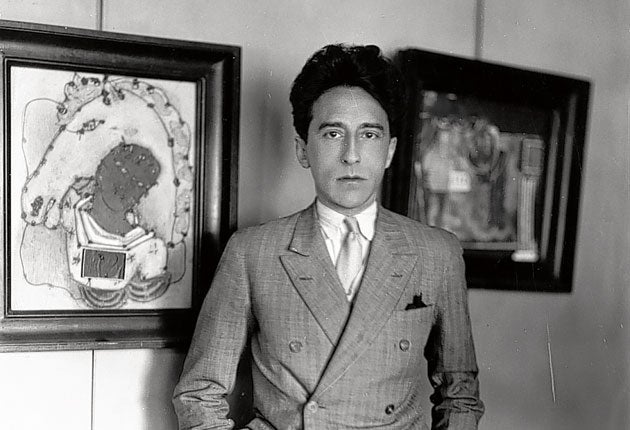John Lichfield: First it was McDonald's, now it's primaries

Official France likes to boast, Asterix-like, of its resistance to Anglo-Saxon cultural incursions. No hamburgers, baseball caps, binge-drinking, obesity or football hooligans here. (The real France has passionately embraced all those marvellous things but let's not dwell on it.)
In the next few days, France will take a significant lurch towards the American way of politics. The Parti Socialiste, the main party of opposition, is about to create a primary system to select a candidate to challenge Nicolas Sarkozy in May/June 2012. The French media has been abuzz with the inside-baseball aspects of the internal party negotiations: who might run? Who can vote? When? But there has been little discussion of how primaries might Americanise, for good or bad, the French political system.
The Socialists had a primary, of sorts, to choose their candidate for 2007. The fragrant but flaky Ségolène Royal won handsomely. Only card-carrying party members were allowed to vote last time. Under the proposals likely to be agreed next week by the party's "national council", any registered French voter will be allowed to take part so long as he or she forks out €1 and signs a declaration of "adherence to left-wing values".
The single, nationwide, open primary will probably take place in October 2011 but the date is still a matter of arcane dispute. The Socialists have four fifty-something, senior hopefuls (known as "les éléphants" and two or three forty-something, would-be Gallic Obamas or Camerons but no overwhelmingly obvious contender to defeat a vulnerable President. The primary system is meant to unite public opinion behind a president-in-waiting, who will have the momentum to squash Mr Sarkozy and give the Gauche its first presidential victory in 24 years.
In other words, the new system is intended to allow the fresh air of democracy into the smoke and perfume-filled rooms which have traditionally shaped centre-left politics in France. Hooray for that. Maybe this is one American idea, shorn of the interminable, money-driven oddities of the US primary system, which the French can improve upon.
Except ... three of the leading candidates – Martine Aubry, the party's first secretary, Dominique Strauss-Kahn, the managing director of the International Monetary Fund (IMF) and Ms Royal – have already reached a smoke and perfume-filled agreement. Whichever is best-placed in the opinion polls will run in the primary. The others will stand aside and applaud.
The fourth "elephant", François Hollande, a former party leader and Ms Royal's former common law husband, is excluded. The cosy deal is not aimed at him alone. It is also meant to deflate the hopes of the rising generation of would-be Obamas and Camerons who want to introduce new characters into the tired old soap opera of French politics.
Plus ça change ...
A fine example of the French imagination
A dictionary to be published in France next week contains 923 pages of rude words: all the imaginative phrases for sexual activities used in contemporary French. Some of the expressions in Dictionnaire des mots de Sexe, lovingly assembled by Agnès Pierron, would make an Australian truck-driver blush.
Others are just about publishable in The Independent. Thus, to have sex can be to "mettre le grand Turc dans Constantinople" (put the great Sultan in Constantinople) or, alternatively, "mettre le pape dans Rome".
"Une directrice de la grande poste" (literally, female director of the large post office) is a woman skilled in a particular technique. To "faire partie de la bande à Ripolin" (to be part of the Ripolin gang) is to be inclined towards homosexuality, the expression coming from an advertisement for Ripolin paint in the early part of the 20th century which showed three men daubing one another's backs. I could go on...
BBC pushes boundaries for Cocteau's 'Picasso'
I wrote a couple of months ago about "The Picasso" which has belonged to the BBC bureau in Paris for more than 40 years. "The Picasso" – as it came to be known to the BBC bureaucracy in London – is actually a lovely sketch by Pablo's friend, the playwright, poet and occasional artist, Jean Cocteau (1889-1963)
The year before Cocteau's death in 1963, he gave an interview in the old Paris studios of the BBC. Before he left, he painted on the wall a large drawing of an ancient Greek head, a lyre, a fish and a sun (all constant themes in Cocteau drawings). He did so, he said, to thank the BBC for having been the voice of freedom in France from 1940 to 44.
When the BBC moved soon afterwards, they chopped out the section of plasterboard containing the Cocteau drawing, placed it in a frame and hung it in the new bureau. When the BBC office moved again earlier this year, they brought with them two treasured, old heirlooms, the Cocteau and me (a sub-tenant for the last 13 years).
As I reported last time, the giant drawing, roughly 7ft high by 7ft wide, could not fit up the stairs to our new office. It has since been winched up by rope from the back yard but – second calamity – there is no wall space in the new bureau big enough to take it.
A VIP may officially open the bureau soon. It is just 70 years since the BBC became the "voice of hope" to many French people. Before the VIP comes, a screen is to be built (very cheaply, licence-payers note) to extend a wall to allow the Cocteau to be given a place of honour.
j.lichfield@independent.co.uk

Join our commenting forum
Join thought-provoking conversations, follow other Independent readers and see their replies